#druids
Text
Prompt:
When negotiating a treaty and the return of magic to Camelot, Arthur agrees to marry a magic user.
The druids suggest Emrys, the greatest and most powerful sorcerer who will ever live - magic incarnate.
Arthur counters this by suggesting Merlin, his dorky but ever loyal manservant, who just happens to have a little bit of magic in him.
Druids: Good. Then we are in agreement.
Arthur: Wait- What?
#prompt#bbc merlin#merlin bbc#merlin#emrys#arthur pendragon#merthur#king arthur#druids#arranged marriage#marriage treaty#arthur knows about merlin’s magic
3K notes
·
View notes
Text
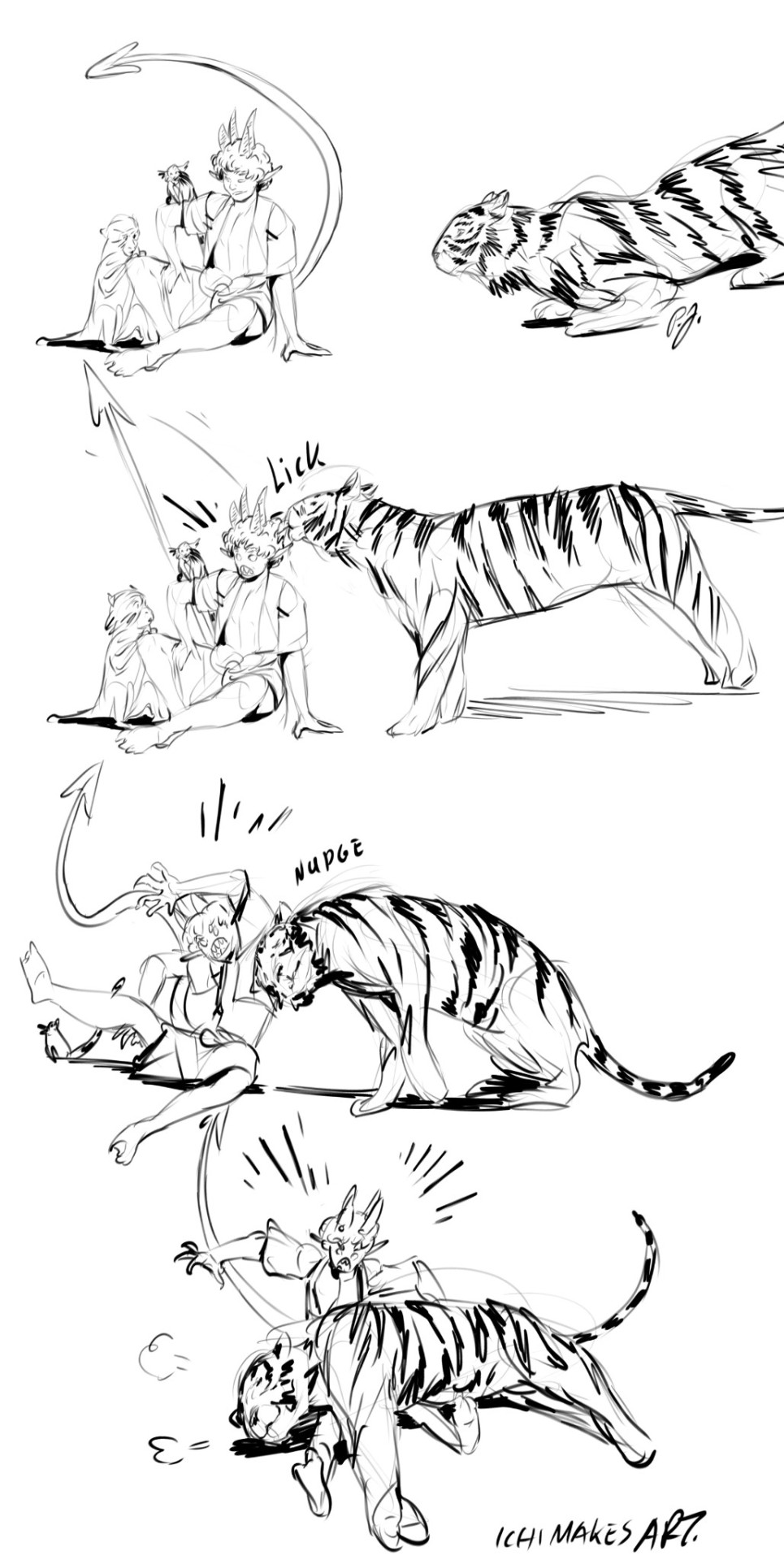
Out of all the places she could nap at...
Little doodle with Jaya annoying Monkey King.
#ichi makes art#art#digital art#illustration#fantasy art#digital illustration#drawings#dnd#dnd art#dnd character#comics#tigers#monkeys#druids#weretiger
293 notes
·
View notes
Text
I hate that Merlin got no good mentor figure in the show.
Like Gaius was fine, ish, because Merlin liked him and he did very genuinely try to keep Merlin safe. But he was also traumatised as fuck and literally agreed with a genocidal maniac who decided killing everyone was better than actually grieving his dead wife.
And Kilgharrah was a spiteful basement lizard and an absolute bastard. He did nothing other than be a convenient plot device who gave Merlin more trauma than he knew what to do with.
And it wasn’t like he had many other options either, like
Alator of the Catha, dead.
Balinor, dead
Hunnith, amazing but no idea about magic.
Uther, read it in a fic one time. I’ve had trips that were less trippy.
Gaius, traumatised to the pyre and back. A few times.
So I can’t really blame him, same as Morgana he just latched onto the first person (or nightmare cave beast basement lizard in his case) who told him he wasn’t cursed or a monster.
But the show would’ve been better if he actually had someone to turn to consistently instead of an immortal who wants to die, a cryptic shut in, a druid he sees twice a year or whoever else showed up for less than 15 minutes of screen time.
#bbc merlin#merlin#merlin emrys#ramblings#i don’t know how to tag this#i’m too tired for this#there’s a merlin apologist point to this somewhere#uther pendragon#fuck uther#gaius merlin#hunith#does her name not have two n’s? I could’ve sworn it was Hunnith#balinor#Alator of the catha#druids#kilgharrah hate club#kilgharrah
202 notes
·
View notes
Text
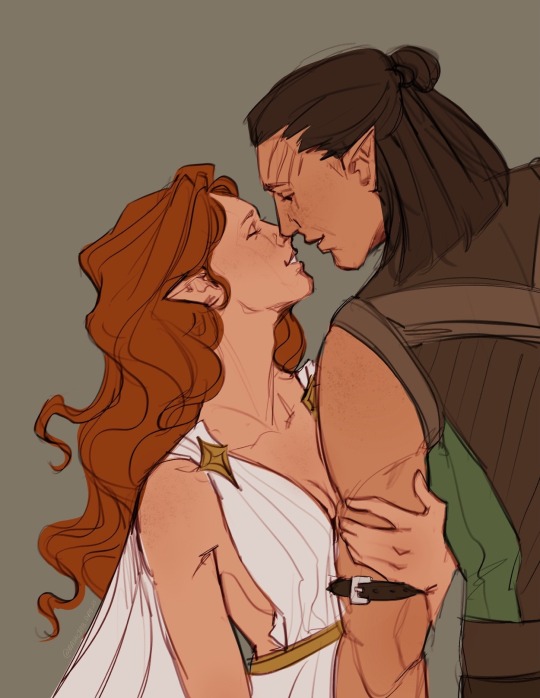
A sketch of my tav, Rhea and her druid bf Halsin 😌🍁
#bg3#baldur's gate 3#baldur's gate iii#baldurs gate fanart#bg3 fanart#bg3 tav#bg3 halsin#halsin#bg3 oc#tav#bg3 druid#druids#digital artist#digital art#art#fanart#halsin x tav#halsin x oc
252 notes
·
View notes
Text
I have this idea that if merlin had become blind in anyway from a monster or accident that he'd still be able to see magic. Like he could see everyone still walking around bc everyone has some magic inside them due to being able to learn. He'd be able to see animals magical auras or signatures, he'd also be able to see the dragons and people ofc. He'd have a difficult time seing Uther due to his hatred of magic diminishing his aura. But the person he can see the most, the brightest and most beautiful and just right aura would be arthurs. Considering they're two sides of the same coin. So if merlin had come to camelot blind, people would not know or find it strange considering he can dodge and move about and look into people's eyes while talking. Merlin can basically see everything, besides anything man-made, like walls and stairs. So he can see every tree in the forest and so on. So people think he's clumsy on purpose since he often trips on stairs or walks into walls.
#bbc merlin#merthur#arthur pendragon#emrys#knights of the round table#merlin emrys#camelot#magic#druids#mordred#morgana#uther pendragon#gaius#ideas#blind merlin#merlin can see magic#merlin can see magical auras and signatures
363 notes
·
View notes
Text



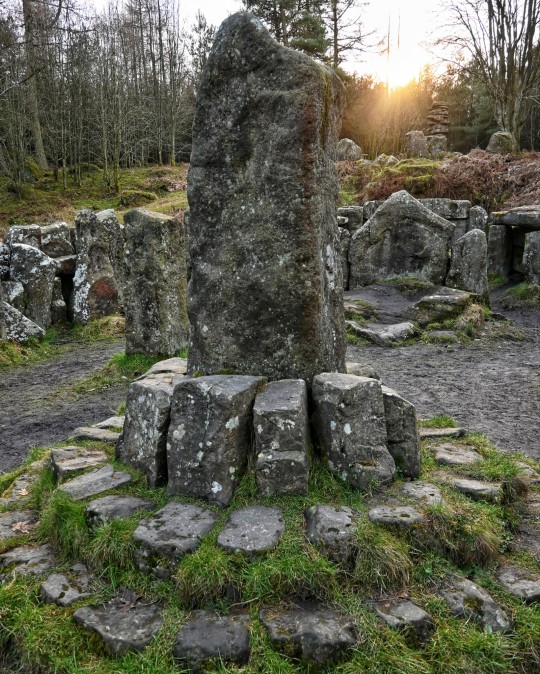
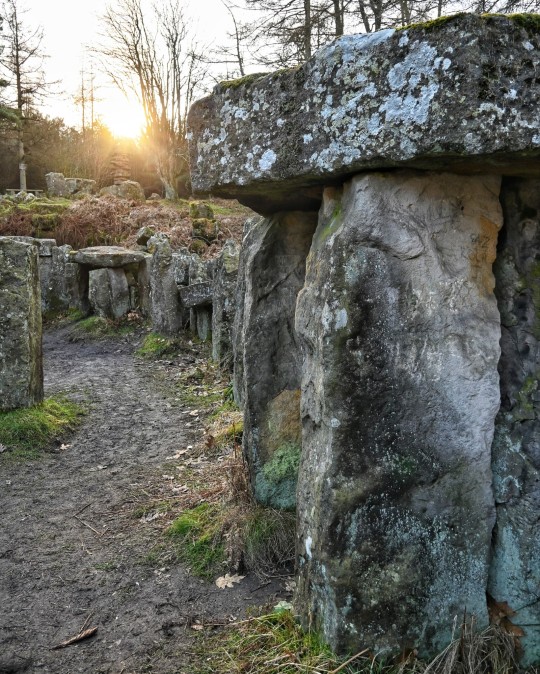

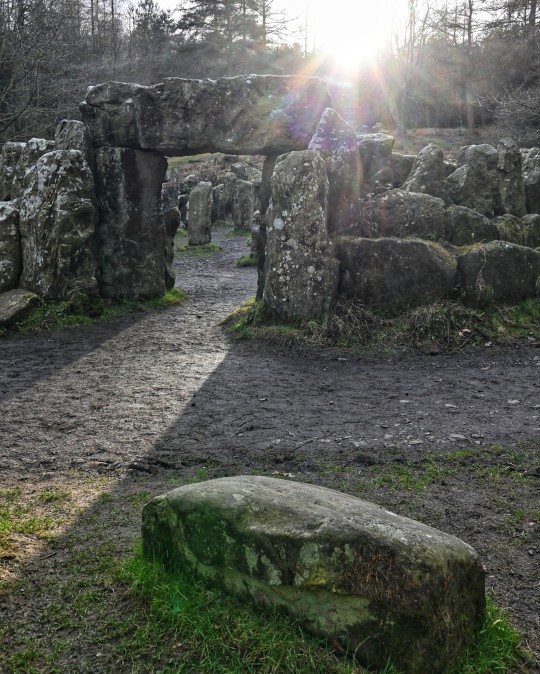
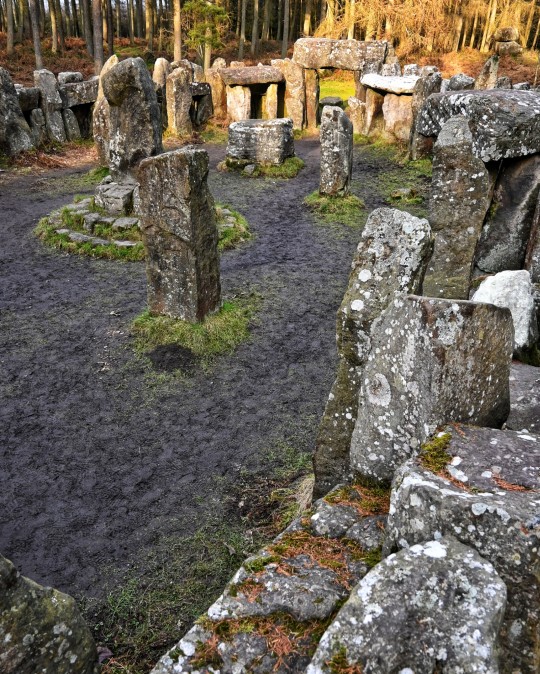

'Druid's Temple', Ilton, Yorkshire
#druids#druids temple#druid#druidic#folly#temple#forest#landscape#stonework#stonehenge#relic#ancient living#ancient culture#ancient craft#outdoors#wild places#Yorkshire
810 notes
·
View notes
Text
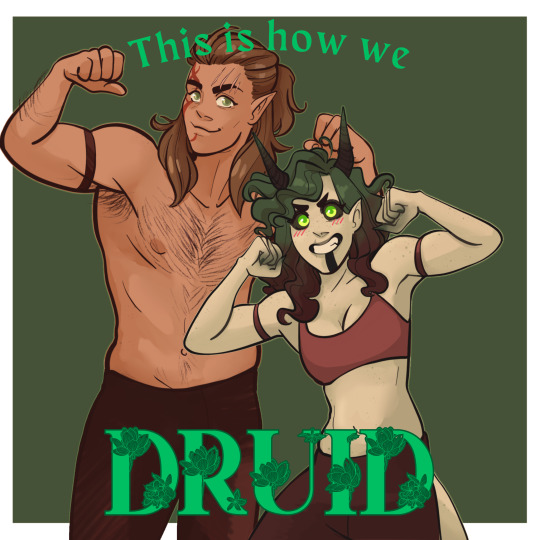
Brains AND brawn! Magic AND might! Animals AND ... well you get the idea! Druids are the best class and Halsin is lovely.
(Feat. my bg3tav, Blythe!)
#halsin#bg3#baldur's gate 3#bg3 tav#bg3 halsin#halsin x oc#baldurs gate fanart#baldurs gate tav#druids#dnd#dnd art#dnd character#blaseart#my art
178 notes
·
View notes
Text
Murals in the Emerald Grove
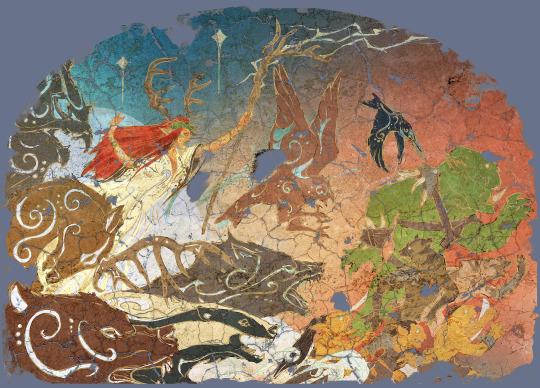
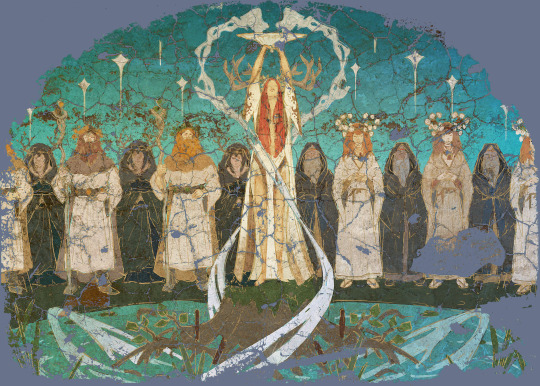
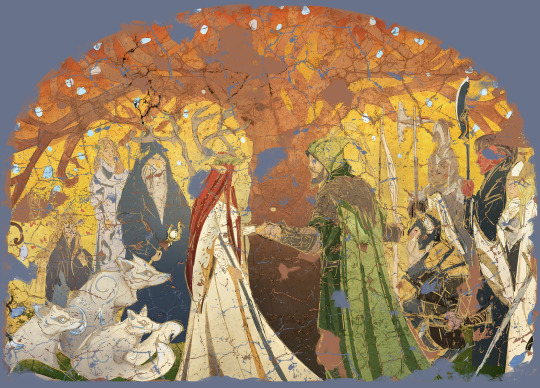
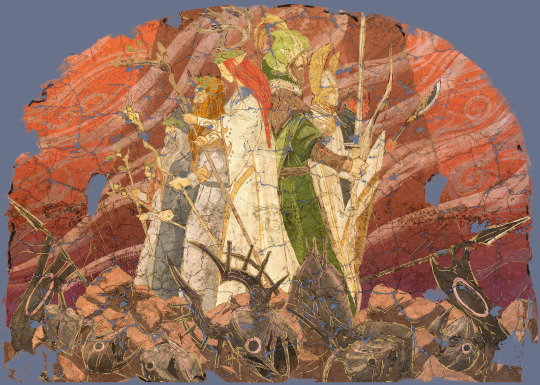
142 notes
·
View notes
Text
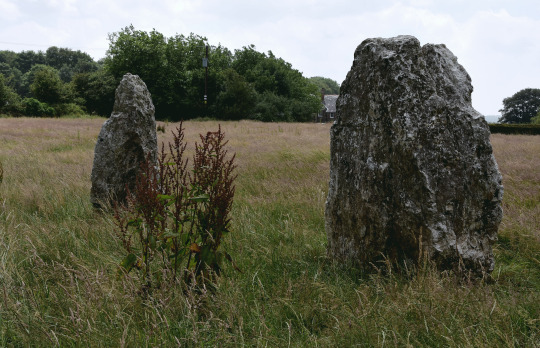
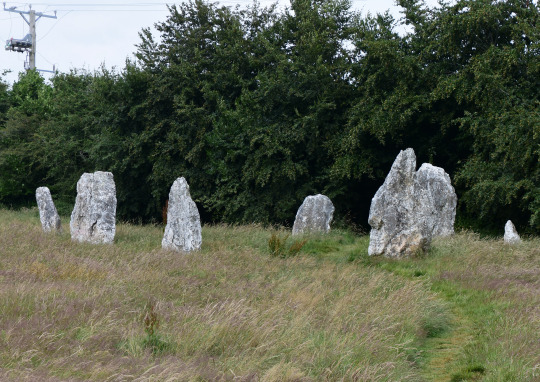
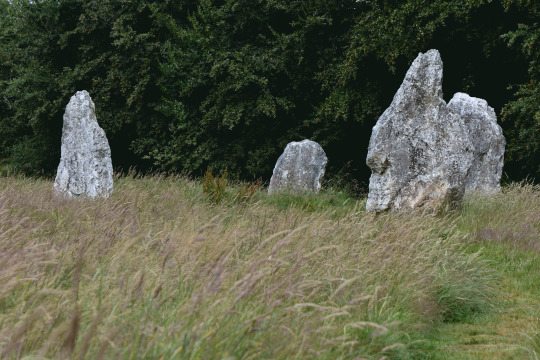
Duloe Stone Circle- Kernow
#stone circle#stone#monolith#neolithic#history#ancient history#pagan#occult#magick#magic#druid#druids#witchcraft#folklore#folk horror#witch#duloe stone circle#myth#legend#cornwall#kernow#celtic#celts
292 notes
·
View notes
Photo

“Druids who Wild Shape together, slay together. “ - Marisha Ray
I love my druid girls
#critical role#critical role fanart#fanart#D&D#dungeons and dragons movie#honor among thieves#doric the druid#keyleth#wild shape#druids#the legend of vox machina
425 notes
·
View notes
Text

"Druid King Throne Room"
Concept art for The Elder Scrolls: Online
Art by Frewin Hu
#frewin hu#the elder scrolls#art#concept art#tes#eso#the elder scrolls online#high isle#druid#druids#fantasy#nature
74 notes
·
View notes
Text
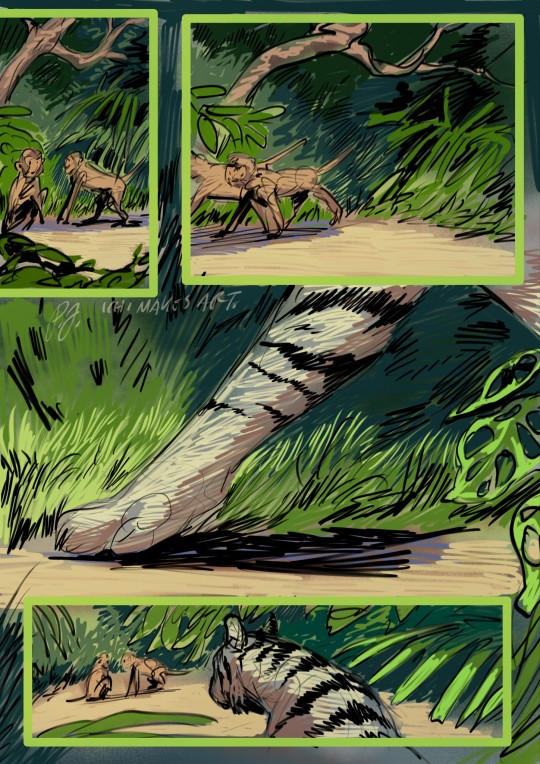

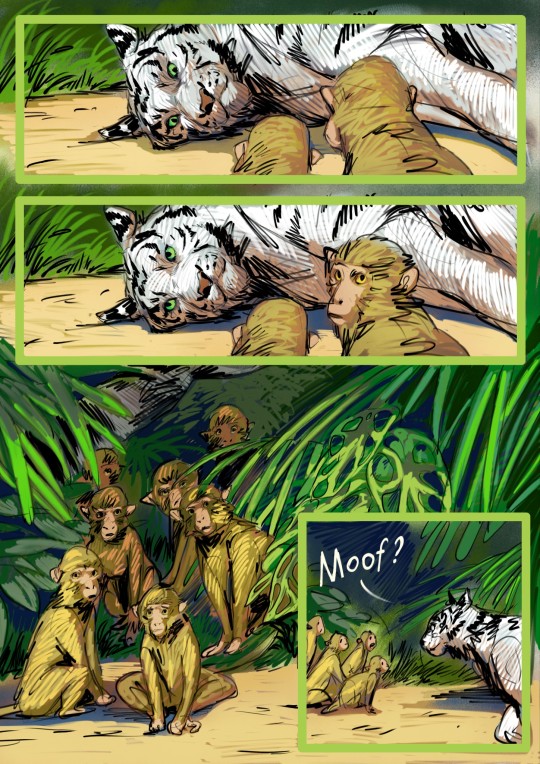



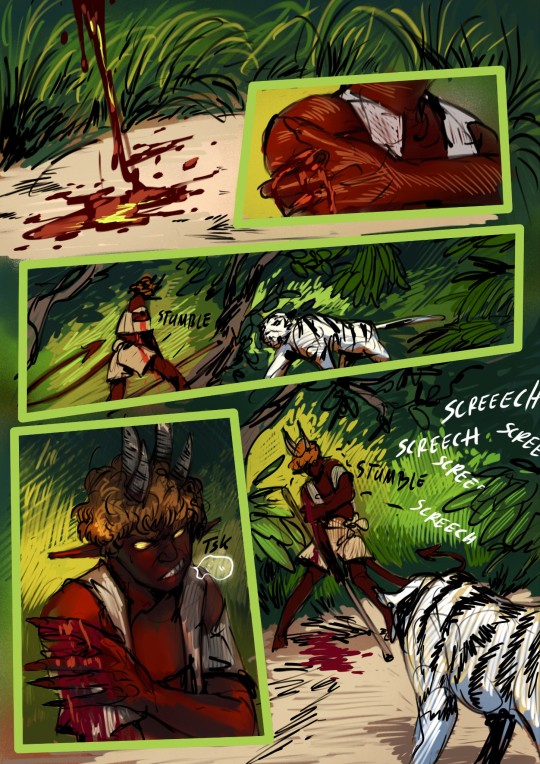


Curious tigress Part 1
Part 2
#ichi makes art#art#digital art#illustration#fantasy art#digital illustration#drawings#dnd#dnd art#dnd character#character backstory#blood#monkeys#tiger#tiefling#goliath#druids#comics#fight
214 notes
·
View notes
Text
🏰Breath of the Æsir
{Loki X Fem.Reader}
Chapter 3: Stories Cannot Burn or Disappear

I am so sorry these chapters are taking me so long. I haven't been the same since Covid! I hope the quality is still good...Thank you for joining my crazy medieval AU Loki fever dream era.
There is a bit of Easter and eclipse magic wound up in this chapter!
Summary: Loki isn't the only one who thinks you are more than a human woman, which buys you time while you figure out how to keep your manor and tenants safe. However, the challenge of nursing a debilitated, power-stripped god adds a layer of complexity to your already daunting task, clouding your judgment when clarity is most needed.
Note to Reader: Yes, Hozier is now a character, your eyes aren't playing tricks on you 😭 But which character will he be? Guess and comment!
Passion and Romance Meter: Nothing explicit yet but hopefully you feel it boiling.
I hope these people don't mind being tagged! I thought you might want to be tagged! Please let me know if you don't want the tag or if you want to be tagged. Also comments and reblogs are healing and joyous for me!
@arcielee @ijuststareatstuffhereok89 @thomase1 @mcufan72 @caffiend-queen @fictive-sl0th @muddyorbsblr @anukulee
@mischief2sarawr @mochie85 @sailorholly @lokisgoodgirl @shambelle97 @lokischambermaid @eleniblue @smolvenger @wheredafandomat @hiroyukinasukawa @meowmeow-motherfucker @latent-thoughts @buttercupcookies-blog @lcolumbia1988 @soulpiercing @wolfsmom1 @mysticmarvelfan
@holdmytesseract @superficialdomina @scrumptious-finicky-illusion @mjsthrillernp @arcielee @poetic-fiasco @gruftiela @thegodofnotknowing @thedistractedagglomeration @tallseaweed
@dangertoozmanykids101 @jennyggggrrr

The clay soil in your husband’s land hadn’t fully absorbed the blood of the Christian god. Not yet at least. The claustrophobic land was hemmed by bogs and marshes, lowlands with the familiar wooden gods made from branches poking out of the muddy banks. The tides to the east would fill the saturated earth till she could take no more before becoming a lake. This system of pooling respiration created a natural barrier for the people. The stillness of the water meant you didn’t stop for long, just enough time to plant your wooden god or light a beeswax candle, burn some leaves as an offering, and then find fast footing across the rickety log bridges built by people no one could remember.
In spring, a carpet of blue wood betony would appear. The town's folk's talk led you to forage it, keeping the blossoms and stems in dark Roman glass, tucked on the kitchen shelf next to the salt. Your husband never noticed your collection, or if he did, he never mentioned it as anything particular or strange. It was a relief to find plants that grew elsewhere, unlike the state of the manor land — high on a hill, flanked by rocky, sandy soil. Collecting plants often made you wonder if Christ might rise from the bogs. You'd just have to wait and see, you supposed, imagining Christ emerging naked from the thick peaty waters, stray herbs clinging to his torso.
Perhaps when Loki showed up, bleeding from his stomach, you'd envisioned something like that before. That desert man had a different name, Jesus of Nazareth. You blushed at the thought of any man, holy or common.
Yet, you didn't blush much while sewing Loki back up. Stitches plunged down his torso into places you'd only seen hinted at on the marble body of Jupiter in Eboracum. Your confident needlework proved itself. If your cheeks reddened, it wasn't from embarrassment but from lack of oxygen, struggling to breathe. Saving a life required haste, much different from the crafts of passing time.
The day the Northmen came you had been already struggling to breathe, you’d lost your air completely and found Loki’s form in front of you when your eyes finally opened again. His hair like ash from the hearth, his eyes the most peculiar color of blue, much like the betony in your waiting Roman jars. Just where had you gone when you’d lost your air? Loki had refused to confront the Danes, refused to fight them. He had handed you back his weapon, leaving you to confront the invaders yourself.
After all, you became a manor wife because your origins had burned in your village's fire, but not in the stories that followed. Stories cannot burn or disappear, especially when people fleeing tell them to the right people in the countryside. Your husband's family had heard your father's tales and believed him. Your hand in marriage was worth more than any dowry. It was all the more disappointing when you couldn't produce an heir or embroidery, and the manor lands remained sandy, rocky, and haunted. You hadn't known a husband should stay close or lie with his wife until Elinor finally told you. Your confidence to heal a stranger, to meet the Northmen at their boat, came from your father. He told you who you were, and like the manor people, you believed him — even if you didn't understand what you were.
The sky had darkened as you came to the mahogany longship anchored next to the wind-ravaged cliffs. You knew to avert your eyes from the mast, the Northern dragon guardian was designed to kill folk such as you. A provocation to your ancestors. There was confusion at their camp, what seemed like hundreds of men were pointing above and shaking their heads. A seer had cast the runes, and the chieftain seemed to not like what the seer had spoken. The rugged man looked up at the sky once more and sent what looked like an envoy to you. He blamed the Norns and you in yet another language you didn’t understand. He could not kill you because it would only curse them more.
Stunned, your trembling hands clutched Loki's blade in disbelief. You ran beneath the still darkening sky, which seemed poised for rain, though no clouds were visible. Looking up, you saw something unimaginable. A planet had fully eclipsed the sun. Your people knew of these events, but you had not witnessed one yourself. As you ran you wondered if the land's spirits had cast a powerful enough curse to scare the Northmen.
Returning home, you found only Loki in the makeshift courtyard, fever-ridden, slumped over the fence. Your heart sank, fearing he was actually dead this time. But the breath of the Æsir still moved through him, you could see his chest moving as you approached.
The village was silent, its people hiding. The only sound was the wind stirring the grain fields and the oak leaves in a dry, papery rhythm. Loki beckoned you inside but he was barely able to move to the porch, he was already worried you’d absorbed too much of the darkness. You fell into his arms, wincing from the feel of his fevered skin through your shift. Significantly taller, Loki's limbs resembled a freshly felled hawthorn. You dragged him closer to the front door, you both were exhausted in the strange day of night.
Your efforts paused for a moment, you readjusted your grip on the stranger. "Saturn is passing over the sun, an eclipse," Loki murmured, breaths faint and labored. How did he know this? Such knowledge was native only to your people. Still reeling from scaring off the Danes, you now faced an eclipse. Loki speculated on the Northmen's possible interpretation of the event. Since much of their knowledge came from his world, he felt he knew exactly what they must have felt seeing the sky darken as you approached.
"They saw the eclipse as a sign of your power. They recognize planetary transits. As you approached them, Saturn crossed the sun's path, a coincidence perhaps in your favor," Loki continued. "But they'll return, and we need to be ready," he cautioned, aware of your mutual defenselessness. He felt responsible for the deaths across these isles, seeking balance, an unfamiliar concept.
You had wanted him to stay long enough to know who he was but now it appeared like he wasn't well enough to be able to leave, even if that is what you both wanted. The truth was, part of you didn't want him to go at all. There was something about him. He knew some of the old ways and where ever he had come from, you suspected again, he had once held a high status.
Loki also continued to contemplate your shared fates. Did the Norns truly allow for this meeting between you as part of the path of the raven’s wingspan, his destiny as a god with no power. He dared to speak to you some of his true thoughts. He felt he owed you some kind of explanation for his resistance to fighting on your behalf.
“Lady, I wish I could help you but as you see I am unwell from my wounds. When I heal, I would like to help you defend your home as part of my thanks, I will find a way to do that does not involve fighting. We have the cosmos on our side it seems, so perhaps there is more luck for our coming together. This is of course if you will continue to have me.”
His pale face seemed even more ghastly, and he laid his body on the porch in a heap, looking very similar to how you first found him. You felt a tenderness stir. You’d felt it for him when you were saving him but now it was tinged with worry for both of your lives and everyone who depended on you.
“Loki I don't want to heal you twice, but it seems this is my fate. Let’s see what you have within you still and if your Gods are listening. I expect you will tell me why you refuse to fight or why you cannot. You owe me the truth. There is much you are not saying.”
He knew he would not be able to hide himself from you as you seemed unable to hide yourself from him. The circumstances unfolding seemed like the actions of reverse spells, instead of concealing they were revealing who you both were. This was vexing to you both.
Despite his sincere words to you, Loki was not sure this troubled land was his final destination. He wondered if he should try and leave as soon as he was able. He was speaking with two tongues. Perhaps he should venture south, go to the Midgard places where panther Gods and pyramids covered in gold existed. Those people were said to do the bidding of the gods with even more ferocity than the Northmen.
Instead, he was sick with fever and stuck with a mysterious, beautiful, and angry woman, whose husband could return at any moment and kill him for what it looked like was happening, even in the middle of a possible invasion. Suddenly his reverie broke as you lifted his shirt to inspect his wound. Your worry for his fever could wait no longer.
"Lady," he said as he batted your hand away.
You protested back, “I have seen you already, why would you be shy now stranger? I need to check your wound, you are feverish,” you continued to pull up his shirt. His gash had indeed become weeping and likely the source of his fever. Whether you liked it or not, you were healing him once again it seemed.
“Wood betony, that is what you need, you are lucky I have some. I’ll see to it Elinor makes you a poultice, and then I am putting you in one of the downstairs bedrooms.” Your eyes were worried even if your words were not. Loki placed his weakened hand on your shoulder, and spoke solemnly, “You know, we need to find your husband.”
You turned your face from him, you didn’t want Loki to notice even the smallest bit of feeling.
“Of course, that is a good idea, this is his manor and his people after all,” you replied. “We can leave when the fever breaks and you can walk without me carrying half your weight,” there was the slightest tinge of playfulness in your words to your surprise. You hoped he did not notice.
As the day was moving into evening, the villagers whispered their suspicions about the stranger you aided. The darkened sky had unsettled them as much as the Northmen. Loki was right, without your husband the manor would devolve into chaos and this would leave the village even more vulnerable.
You watched Loki slowly drag his body to the downstairs bedroom and close the thick doors behind him before you had the chance to redirect him or wish him a good night. You thought better to tell him that he had gone into your husband’s bedroom not the servant’s quarters you had intended for him to rest.
You felt your stomach twist in knots. If your husband came home tonight the wrong impression you worried you would make, would surely be inevitable. You would have to go and move Loki once you were done with your chores. A prospect that left you even more anxious.
Finally, when everyone had gone to sleep and Elinor had gone to her quarters, you stood alone in the empty house contemplating what you should do next. Sleep seemed an impossibility. The eclipse had only been five minutes, but it disturbed the entire day. Now it was nearly midnight and it felt like morning. All time had shifted somehow. Loki sleeping in your husband's bedroom loomed in your head.
To quiet your thoughts you found yourself in the kitchen, sometimes cooking felt relaxing even if you were not good at it. Instead tonight you eyed the row of bottles on your shelf. There was something else calling to you. You grabbed a jar of mistletoe berries, and held them in your hands. Their color was startling.
Suddenly you busying yourself muddling them with the mortar and pestle. If there was a recipe to follow you did not know it, you pulled a few more bottles off the shelf and added the ingredients. Mullein leaves and blackberry.
Pausing for a moment you felt that Loki’s knife was still around your body, you had placed it in a leather holder diagonally across your chest, and forgotten it was there. The knife passed over your breasts and you couldn’t help but touch the length of it.
You hadn't the time to have paid much attention to it before. You noticed the unusual, rich craftsmanship. The inlay was extraordinary. Garnets and chrysoprase. You then gently pulled it out of the holder and carefully pricked your finger with the impossibly sharp tip. This action surprised you.
You inhaled deeply. Crimson blood rolled down your finger and into the stone mixing bowl. You placed your still bleeding fingertip into your mouth hoping to quickly stem the bleeding, but the knife had been too sharp, or you cut yourself too deep.
Quickly, you sucked the wound, blood filling your mouth. You spat the excess into the bowl and placed it on the windowsill, intuitively sensing it needed the moonlight. Just then you heard a deep voice behind you. You were frozen in place, unable to turn around. It was Loki.
"I had no idea you were a seer, you could have told me that sooner and it would have cleared things up," his words rich with sleep and something else.
When you finally turned around you saw he was only wearing his leather trousers and the poultice. Your heart produced a wild, unfamiliar beat, and you steadied yourself against the kitchen table. You weren't a seer, but you could not explain what you were just doing or what you were now feeling.
Before you could stop him, Loki took your mixture from the sill and drank it. "My gods what have you done?" the startled words fell out of your mouth as he placed the now empty bowl back into your hands.
#loki fanfic#loki fanfiction#loki fandom#loki fluff#mcu#loki laufeyson#tom hiddleston#loki#loki smut#loki x reader#loki art#loki fan art#medieval 🏰 loki#medieval fanfic#norse paganism#norse mythology#norse pantheon#norse gods#anglo saxon#druids#loki x you#loki fanart
55 notes
·
View notes
Text
Prompt:
King Arthur and his knights have heard rumours of Emrys, a god the Druids worshipped. Emrys was said to be kind, merciful, generous, and powerful. Arthur refused to follow any gods of the old religion, but he secretly admitted to himself that if he did, he would choose the god that protected the people out of genuine love and compassion, not those other gods that needed all sorts of sacrifices and tithes to buy their favour.
But while out on a patrol or something, he meets a group of druids worshipping in some sort of magical and sacred clearing in the forest, when Morgana and her own entourage ambushes them from behind. Knowing they’re outnumbered and outmatched, and that even the druids, children and all, would fall to Morgana’s cruelty, Arthur prays to Emrys, begging to be saved, promising anything, everything.
And Merlin saves them.
The druids tell Arthur that Merlin is Emrys, but Arthur doesn’t understand. He blames himself, thinking that by his prayer, his offer, he accidentally sold Merlin for their safety. He thinks Emrys has taken Merlin to be his vessel, possessing him.
And he wants his friend back.
#merlin bbc#bbc merlin#prompt#merlin#bamf!merlin#arthur pendragon#king arthur#emrys#morgana#druids#emrys is a god#merlin is a god#possession#except not really#guilty arthur#merthur#because merthur
924 notes
·
View notes
Text
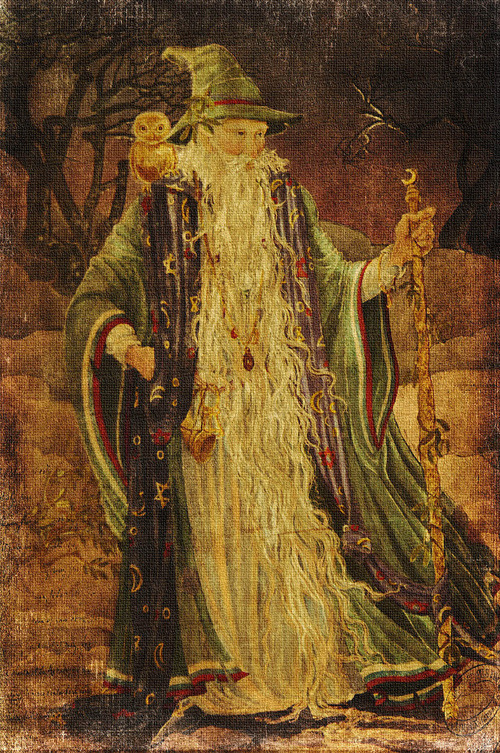
837 notes
·
View notes
Text
Merlin thought he was enough.
He thought he was enough to defend his mother from the bandits but in the end it was his mother who defended him by sending him to Camelot.
He thought he was enough for Freya and that they could live happily together, away from Camelot, but he could not save her.
He thought he was enough to help Morgana but cowardice prevailed and he failed to save her.
He thought he was enough for Gilly, Taliesin, Iseldir and all his people but he failed.
He thought he was enough for Arthur, but Arthur chose Gwen.
He thought he was enough to help Arthur forge a new destiny and unite all of Albion and remove the ban on magic on Camelot, but Arthur died and none of this was done.
Merlin once thought he was enough.
Now Merlin knows he never was.
#merlin bbc#bbc merlin#merthur#one sided merthur#merlin idea#merlin prompt#merlin emrys#arthur pendragon#king arthur#morgana le fay#morgana pendragon#Guinevere Pendragon#Gwen Pendragon#Druids#my writing
229 notes
·
View notes